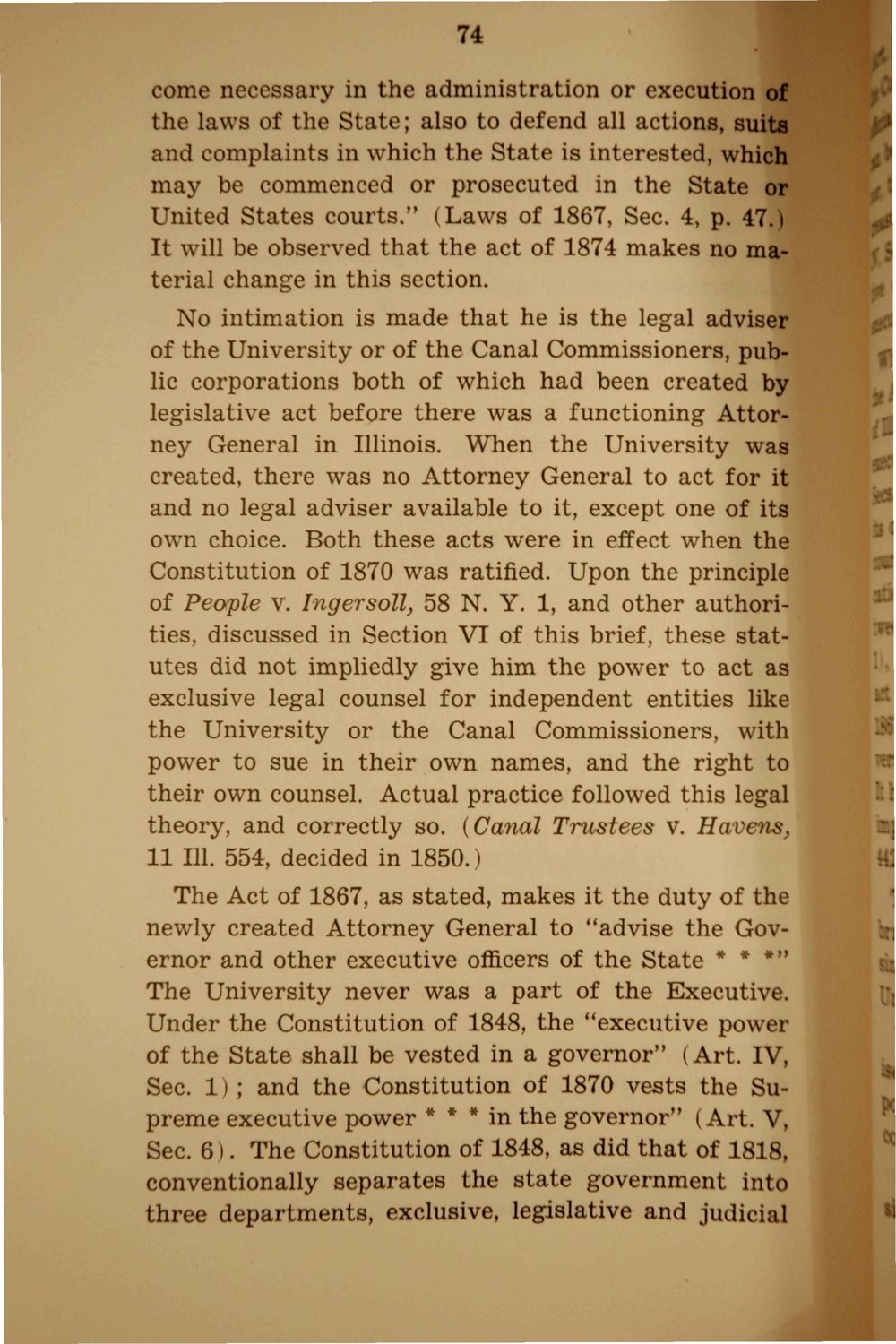| |
| |
Caption: Booklet - UI Charter of Freedom (1942)
This is a reduced-resolution page image for fast online browsing.

EXTRACTED TEXT FROM PAGE:
74 come necessary in the administration or execution of the laws of the State; also to defend all actions, suits and complaints in which the State is interested, which may be commenced or prosecuted in the State or United States courts." (Laws of 1867, Sec. 4, p. 47.) It will be observed that the act of 1874 makes no material change in this section. No intimation is made that he is the legal adviser of the University or of the Canal Commissioners, public corporations both of which had been created by legislative act before there was a functioning Attorney General in Illinois. When the University was created, there was no Attorney General to act for it and no legal adviser available to it, except one of its own choice. Both these acts were in effect when the Constitution of 1870 was ratified. Upon the principle of People v. Ingersoll, 58 N. Y. 1, and other authorities, discussed in Section VI of this brief, these statutes did not impliedly give him the power to act as exclusive legal counsel for independent entities like the University or the Canal Commissioners, with power to sue in their own names, and the right to their own counsel. Actual practice followed this legal theory, and correctly so. (Canal Trustees v. Havens, 11 111. 554, decided in 1850.) The Act of 1867, as stated, makes it the duty of the newly created Attorney General to "advise the Governor and other executive officers of the State * * *" The University never was a part of the Executive. Under the Constitution of 1848, the "executive power of the State shall be vested in a governor" (Art. IV, Sec. 11 ; and the Constitution of 1870 vests the Supreme executive power * * * in the governor" (Art. V Sec. 6). The Constitution of 1848, as did that of 181S, conventionally separates the state government into three departments, exclusive, legislative and judicial
| |